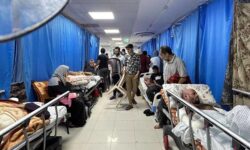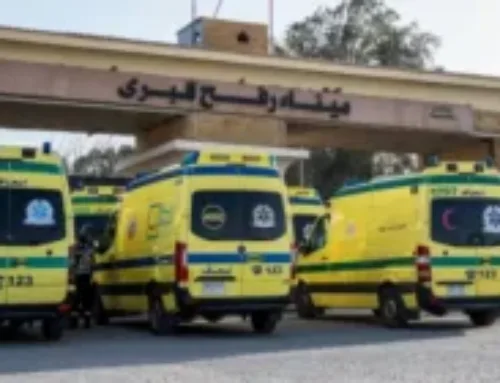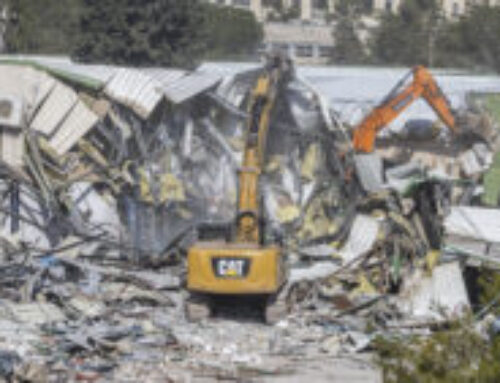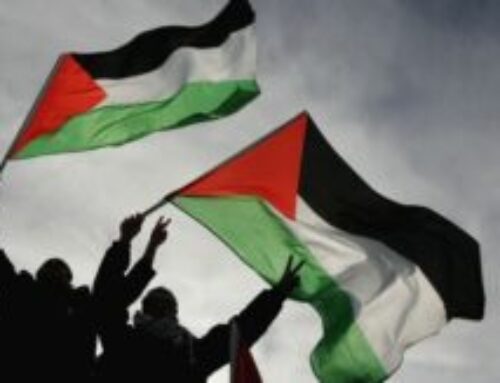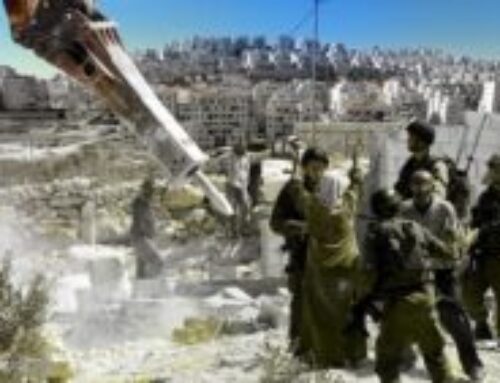In the narrow hospital corridors, where the smell of disinfectant mixes with the scent of fear, Gaza appears as a city that has technically emerged from war, yet continues to live it on the face of every child, in the cry of every mother, and in the trembling hands of doctors exhausted not by hesitation, but by relentless duty. Here — in the very places meant to preserve life — death lingers like a constant visitor, wandering among overcrowded beds and stalking bodies worn down by siege long before the war finished them off.
More than a month after the ceasefire was announced, emergency rooms have not rested, nor have the loudspeakers stopped calling doctors at every moment. The war, whose cannons have fallen silent, still pulses through the torn arteries of a health system deprived of medicine, equipment, electricity, and even a single breath free from fear.
Mohammad… A Child Trapped by the Paper That Was Never Signed
The story of Mohammad Imad, who died before his first birthday, encapsulates the tragedy of a population breathing on the edge of death. Born with a heart defect, doctors said he urgently needed treatment outside Gaza — but the siege was faster than hope.
His father recounts, voice trembling: “We tried twice to travel through Egypt, but the occupation refused without explanation. The third time, after the ceasefire, the crossing was closed. Mohammad died waiting for his turn”
Mohammad did not die from bombing, but from the permit that was never signed, the crossing that never opened, and the time that ran out before he was given a chance to live.
This is not an isolated incident. According to medical sources in Gaza, 40% of medical referral requests are refused or delayed for months, causing patients to die long before reaching treatment.
Numbers That Speak the Language of Collapse
Gaza now stands on the ruins of a shattered healthcare system.
Dr. Mohammad Abu Salmiya, director of Al-Shifa Hospital, says death continues to claim lives that could have been saved: “ICU units operate under inhumane conditions. Essential medicines are unavailable… electricity cuts countless times a day.”
The numbers are staggering: Newborn deaths increased from 9 to 50 per 1,000 live births — a fivefold rise.
Maternal mortality jumped from 27 to 145 per 100,000 births.
Severe shortages in chronic disease medications, antibiotics, and surgical supplies.
A sharp increase in premature births, congenital anomalies, and low birth weights due to maternal malnutrition and extreme psychological stress.
Abu Salmiya warns:
“These indicators will leave scars on entire generations… we are facing an ongoing humanitarian catastrophe.”
Hospitals… Places of Temporary Survival, Not Real Treatment
In the hallways of Gaza’s hospitals, a child waits for a surgery that cannot be performed, a mother clutches her wounded son hoping for a turn that may never come, and others fight death simply because electricity failed, or a bottle of medicine never arrived, or a crossing remained closed.
The war ended on paper — but death continues its work in silence.
It no longer comes through missiles, but through slow collapse, through shortages, through everything the war consumed except pain.
As Al-Shifa’s director explains, the closure of crossings is no longer a political procedure, but a wall between patients and life. Even the ceasefire did not open the doors to treatment, nor did it allow the flow of urgently needed equipment and medicines.
“Opening the crossings is a necessity for survival, not a humanitarian gesture,” Abu Salmiya says. “Time is running out… every day lost is a life cut short.”
A Ceasefire Does Not Mean the Bleeding Stops
Gaza today is not a city in recovery, but a city struggling to survive the aftermath of war. Its people need electricity as desperately as they need medicine, hope as urgently as they need food.
The ceasefire may have stopped the bullets, but it did not close the wound, nor did it halt the accumulating pain, nor the death that continues to roam its hospitals every day.
Mohammad is gone… but his story — as his father insists — “must be told so that no other children die the same way.”
Thus far, Gaza — despite all it has lost — is still searching for life, not as a postponed right, but as an urgent necessity for those who remain.

